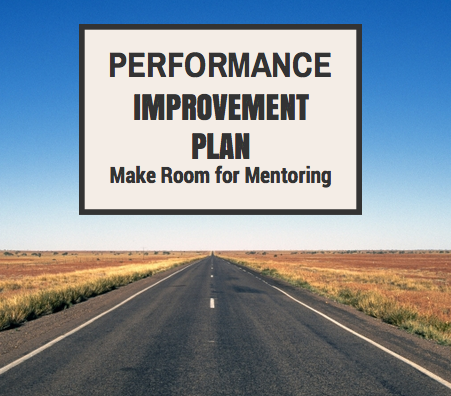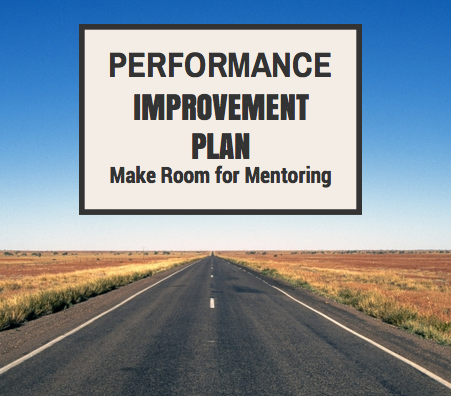
 Telling your employees they need to improve isn’t enough. You need to provide a roadmap and tools to help them achieve whatever goals you set out for them.
Telling your employees they need to improve isn’t enough. You need to provide a roadmap and tools to help them achieve whatever goals you set out for them.
A performance improvement plan serves as this roadmap, and one of the tools you’ll often recommend is mentoring.
But here’s the thing—it’s not enough to simply recommend mentoring. Be smart in your approach so that your employee is just as excited about mentoring as you are.
Here’s what to keep in mind.
1. Make sure the employee doesn’t see mentoring as punishment.
Mentoring is a good thing, not the tenth circle of hell where bad employees go to wither and die. Everyone in your organization should see the value in mentoring—and anyone invited into the program, whether a mentor or mentoree, should know it’s an honor.
2. Encourage mentorees to share their performance improvement plans with their mentors.
A performance improvement plan can provide a fabulous starting point for the mentoring relationship. While the mentoree/mentor won’t be able to address every issue or goal, they will be able to address overarching themes (e.g. leadership, confidence, productivity) during the nine to twelve months they’re working together.
3. Communicate with the mentoring program manager.
Let’s consider an example: If you, as the talent manager, want to make sure the mentoring program produces mentorees with stronger leadership abilities, then you should communicate this goal with the mentoring program manager.
Why?
The program manager signs off on the mentor/mentoree pairings, so if leadership development is one of the main goals of the program, the program manager can keep this in mind as he or she finalizes pairs.
In other words, talent managers and program managers should be on the same proverbial page since they share the same primary goal: nurturing talent.
4. Check in with employees to see how the mentoring relationship is going.
Yes, program managers monitor the relationships, but that doesn’t mean you shouldn’t check in as well. Formal mentoring programs typically last nine to twelve months. You’ll likely be checking in with the employee during this timeframe to update his or her performance improvement plan anyway, so it makes sense to ask the person how the mentoring relationship is going (and to remind the person to share the updated improvement plan with his or her mentor).
Remember, strong communication is a critical component in each of the tips we outlined above. Communicate regularly with your employees and you’re bound to see positive performance changes over time. Good luck!
{{cta(‘b67cb563-dbaa-4c00-843c-eaa611050a45’)}}